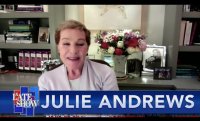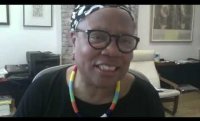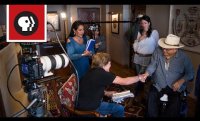Trick-or-treating may not be on the table this year, but October’s final writing contests may offer their own sweet rewards. Each of these opportunities awards a prize of $1,000 or more, with a deadline of October 31. Good luck!
American Poetry Review Honickman First Book Prize: A prize of $3,000 and publication by American Poetry Review is given annually for a first poetry collection. The winning book is distributed by Copper Canyon Press through Consortium. Ada Limón will judge. Entry fee: $25.
Comstock Review Chapbook Contest: A prize of $1,000, publication by the Comstock Writers Group, and 50 author copies is given annually for a poetry chapbook. Michael McAnaney will judge. Entry fee: $30.
Conduit Books & Ephemera Minds on Fire Open Book Prize: A prize of $1,000, publication by Conduit Books & Ephemera, and 30 author copies is given annually for a book of poetry. The editors will judge. Entry fee: $25.
Elixir Press Poetry Award: A prize of $2,000 and publication by Elixir Press is given annually for a poetry collection. John Nieves will judge. Entry fee: $30.
Finishing Line Press Open Chapbook Competition: A prize of $1,000 and publication by Finishing Line Press is given annually for a poetry chapbook. All entries are considered for publication. Entry fee: $15.
Indiana Review Blue Light Books Prize: A prize of $2,000 and publication by Indiana University Press is given in alternating years for a collection of poetry or a collection of short fiction. The 2021 prize will be awarded in poetry. The winner will also receive travel expenses to read at the 2021 Blue Light Reading in Bloomington, Indiana. Entry fee: $20.
PEN/Faulkner Foundation Award for Fiction: A prize of $15,000 is given annually for a book of fiction published during the current year. Four finalists will each receive $5,000. The winner and finalists will also be invited to read in Washington, D.C., in May 2021. Entry fee: none.
Persea Books Lexi Rudnitsky First Book Prize: A prize of $1,000 and publication by Persea Books is given annually for a first poetry collection by a woman who is a U.S. citizen or permanent resident. The winner also receives a six-week, all-expenses paid residency at the Civitella Ranieri Center in Umbria, Italy. Entry fee: $30.
Poetry Society of the United Kingdom National Poetry Competition: A prize of £5,000 (approximately $6,350) and publication on the Poetry Society of the United Kingdom website is given annually for a single poem. A second-place prize of £2,000 (approximately $2,540) and a third-place prize of £1,000 (approximately $1,270) are also given. The winners will also be published in Poetry Review. Poems written in English by poets from any country are eligible. Neil Astley, Jonathan Edwards, and Karen McCarthy Woolf will judge. Entry fee: £7 (approximately $9) for one poem, £4 (approximately $5) for each additional poem.
Red Hen Press Benjamin Saltman Poetry Award: A prize of $3,000, publication by Red Hen Press, and a four-week residency at PLAYA in Summer Lake, Oregon, is given annually for a poetry collection. Jeffrey Harrison will judge. Entry fee: $25.
Red Hen Press Quill Prose Award: A prize of $1,000 and publication by Red Hen Press is given annually for a short story collection, a novel, or an essay collection by a queer writer. Amber Flame will judge. Entry fee: $10.
River Teeth Literary Nonfiction Prize: A prize of $1,000 and publication by University of New Mexico Press is given annually for a book of creative nonfiction. Megan Stielstra will judge. Entry fee: $27.
Tupelo Press Sunken Garden Chapbook Poetry Prize: A prize of $1,000, publication by Tupelo Press, and 25 author copies is given annually for a poetry chapbook. Entry fee: $25.
Tucson Festival of Books Literary Awards: Three prizes of $1,000 each are given annually for works of poetry, fiction, and creative nonfiction. The winners will also receive scholarships to attend a workshop at the Tucson Festival of Books in March 2021. Entry fee: $20.
University of North Texas Press Vassar Miller Prize: A prize of $1,000 and publication by University of North Texas Press is given annually for a poetry collection. Entry fee: $25.
Visit the contest websites for complete guidelines, and check out the Grants & Awards database and Submission Calendar for more contests in poetry, fiction, and creative nonfiction.







